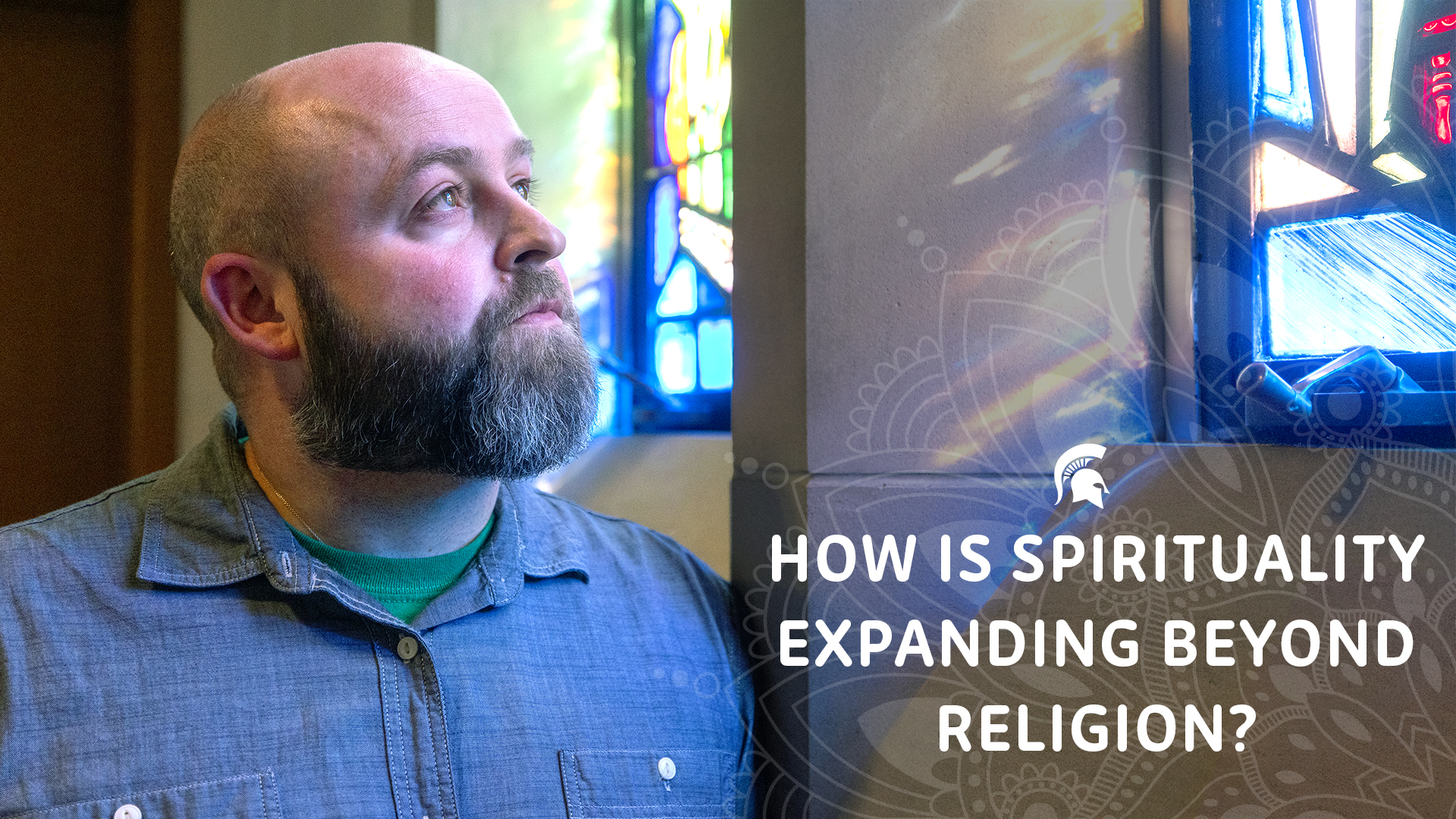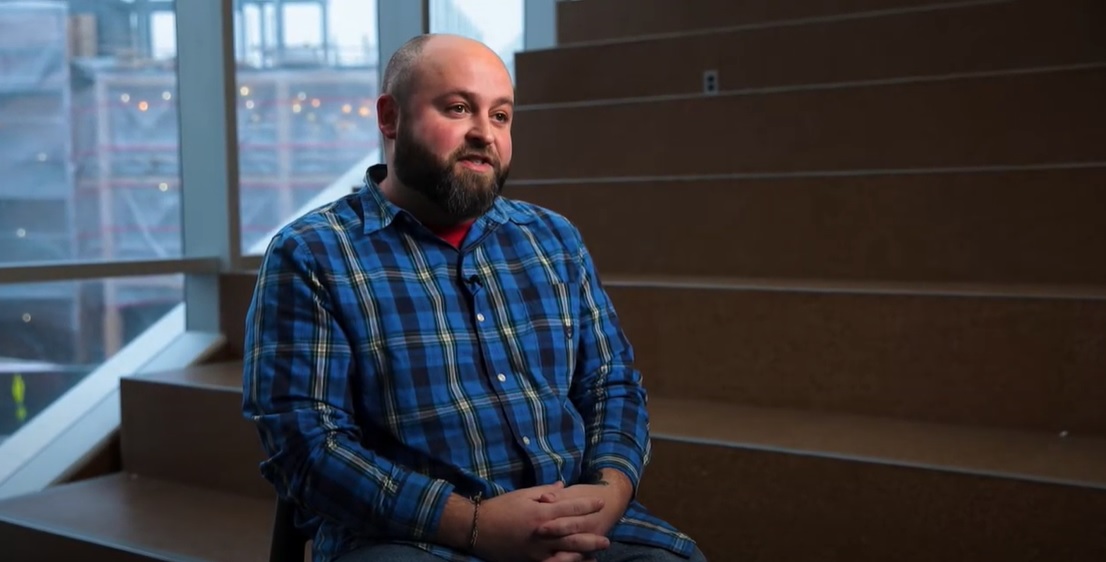Morgan Shipley
732 Wells Hall
619 Red Cedar Rd
East Lansing, MI 48824
FacultyReligious Studies
Associate Professor
Foglio Endowed Chair in Spirituality
Associate Chair for Undergraduate Studies
Spirituality; Religion in North America; New Religious Movements; Religion in Popular Culture; Religion and Non-Profits
Biography
Morgan Shipley (Ph.D.) is the Inaugural Foglio Endowed Chair of Spirituality and Associate Professor of Religious Studies at Michigan State University. My research, projects, teaching, and work related to the Chair focus on 1) understanding mystical and esoteric new religions that highlight spirituality as opposed to institutional religiosity, 2) positioning individuals and groups who increasingly identify as spiritual but not religious, and 3) situating the nature and manifestations of secular spirituality.
In his 2012 Commencement Speech Address, Father Foglio spoke about the enduring power and place of love: “To be human presumes the ability to love…one of the surest ways of practicing your humanity is to practice unconditional love…at the heart of being virtuous, then, is to love with our will, which is to act humanly.” Father Foglio’s comments stress the value of a universal, unconditional love that transcends and persists regardless of circumstance, identity, or community membership. Within this vision of secular spirituality, Father Foglio implores us to consider the ways in which a college education, in addition to providing transferable skills, affords unique opportunities to consider not only what it means to be human, but also what it means to exist in a world with others. It helps us take a step back in order to recognize a values-driven approach to education and professional development, and offers a way to see the college experience as a mechanism to cultivate engaged, compassionate, empathetic, and virtuous citizens and leaders. Within this transformational setting, we can construct an orientation and environment for developing a positive ethos that pushes students, staff, and faculty to identify tolerant, inclusive, and welcoming solutions to the social, political, spiritual, and quotidian quandaries we face.
The notion of secular spirituality speaks to completeness, a way to see one’s self, purpose, and relationship to others as mutually contingent. Grounded in the here and now, enhancing secular spirituality at MSU entails the full development of our community and its members, leading to a more inclusive setting and commitment to celebrating our existence with others. Pedagogically, I am driven by this values-based, human-centered approach to education. At the end of each semester, I tell my classes that while I do hope they retain the knowledge they gained as it relates to the specific religious, spiritual, and cultural inflections we studied, my greatest hope is they walk away as more complete humans, with an enhanced capacity to listen, to empower, and to act with what the Buddha called empathetic joy, or “the wholesome attitude of rejoicing in the happiness and virtues of all sentient beings,” and loving-kindness, or “the wish that all sentient beings, without any exception, be happy.” Reflecting Father Foglio’s guidance that spirituality is about the pursuit and practice of excellence in human living, my classes ultimately seek to create space for students to catch the spark that leads them to desire a meaningful and well-lived life, face up to the important questions we inevitably encounter, and become emboldened to seek out answers and ways of being that connect professional hopes with values of responsibility, stewardship, and compassion.
My first monograph, Psychedelic Mysticism: Transforming Consciousness, Religious Experiences, and Voluntary Peasants in Postwar America (Lexington Books, November 2015), critically re-focuses how we understand the relationship between mystical consciousness and projects of social change in postwar America by highlighting the nature and expression of new spiritualities and religious movements predicated on social justice praxis and actualized through social engagement and political transformation. By charting a shift from religious membership to spiritualities defined by a sense of oneness, my project helps revitalize the ways in which postwar Americans navigated changes in religious culture by abandoning the church in favor of holistic lifestyles, communal projects, and altruistic practices.
Since its publication, such a focus has led to a series of forthcoming projects centered more and more on the notion and expressions of secular spirituality, including three intended books. The first (4/6 chapters fully written) explores the connection between psychedelics and the turn to spirituality in postwar America as varied responses to the disenchantment of institutional belief and the enhanced place spirituality assumed in the day-to-day activities of the religious and secular alike. As opposed to common narratives that see the rise of spirituality as the pursuit of self-betterment (e.g., see the New Age), this project grounds spirituality as a desire for belonging, leading to broader commitments to human flourishing and virtuous living. Co-written with a colleague from Milligan College, the second (in the drafting process) draws upon Transcendentalist thinking to understand contemporary manifestations of neo-liberal individualism and its effect on social realities, economic conditions, cultural identities, political institutions, popular culture, religious identity, and spiritual commitments. An intended chapter, for example, draws upon Emerson’s “Address” to help unpack the meanings and expressions of the spiritual but not religious movement in contemporary America. The third (outlining stage) intends to offer an extended analysis of secular spirituality as a distinct way of engaging the world while seeking out more inclusive and responsible ways of being and being together.
Education
Doctor of Philosophy in American Studies, 2013
Michigan State University – East Lansing, Michigan
Dissertation: “One Never Loves Enough:” Psychedelics and Spirituality in Post-war America
Dissertation Chair: Dr. Arthur Versluis, Chair of Religious Studies
Master of Arts in the Social Sciences: Philosophy of Religion & Social Science Methods Foci, 2005
University of Chicago – Chicago, Illinois
Thesis: Saving Democracy: Legitimating Civil Disobedience Through Popular Society
Thesis Advisors: Dr. Iris Marion Young, Political Science; Dr. Chad Cyrenne, Managing Director of MAPSS
Bachelor of Liberal Arts in Political Science, Summa Cum Laude, Honors Program, 2004
DePaul University – Chicago, Illinois
Thesis: A Problem of Liberty: Promises of Freedom/Discourses of Piety in Revolutionary America
Thesis Advisor: Dr. James Block, Political Science
Principal Scholarly Interests
Spirituality, Secular Spirituality, Spiritual but not Religious, Comparative Spirituality, New Religious Movements, Mysticism & Esotericism, Psychedelics & Entheogens, Spirituality & Wellness, Religion & American Culture, Spiritual Subcultures, Occultism & Magic, Spirituality & Social Justice, Religious Diversity & Pluralism, Theories & Methods, Religion & Popular Culture
Media Mentions
Spiritual, not spooky. After Halloween, Christians observe All Saints’ Day
The Associated Press
November 1, 2024
How ‘nones’ − the religiously unaffiliated − are finding meaning, purpose and spirituality in psychedelic churches
The Conversation
October 10, 2023
Awards and Honors
Courses
REL 101: Exploring Religion
REL 102: Exploring Spirituality
REL 205: Myth, Self, and Religion
REL 206: Spirituality, Belonging, and the Quest for Purpose
REL 291: Special Topics in Religion
For example “The Occult in America” and “Religion, Violence, Peace”
REL 301: Methods and Theories in Religion
REL 380: New Religions
IAH 207: Spirituality in the Contemporary Age
IAH 231A: Religious Experiences, The Human Event, Identity, and Culture


